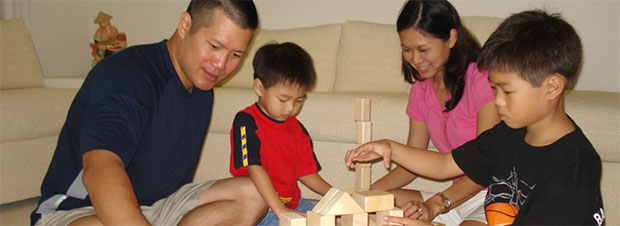
Income loss in Hawaiʻi is worse than the United States as a whole, according to a new infographic fact sheet by faculty at the University of Hawaiʻi at Mānoa Center on the Family. The graphics were published to raise awareness of the current economic struggles in Hawaiʻi and highlight the implications on family and child well-being roughly two months into the COVID-19 crisis.
Ivette Rodriguez Stern, Barbara DeBaryshe and Hua Zan use data from the U.S. Census Household Pulse Survey to highlight what local families are going through amidst the COVID-19 pandemic. Recent survey results show that many households in Hawaiʻi have experienced job loss and expect employment income loss, while some have experienced food scarcity and housing insecurity. Adults have delayed medical care, and K–12 learning has been significantly modified during the current crisis.
“When the current moratorium on evictions is lifted, will homelessness increase? What will the long-term effects of food and housing insecurity be on Hawaiʻi’s families, especially children?” asked Rodriguez Stern.
“The federal data confirms what we know already, that Hawaiʻi is being hit harder than the mainland on income loss,” said DeBaryshe. “The stopgap measures to help struggling families—how long will they last, and are they enough to meet the need? We hope the economic policies to rebuild our economy will focus on families’ ability to pay rent and put food on the table.”

